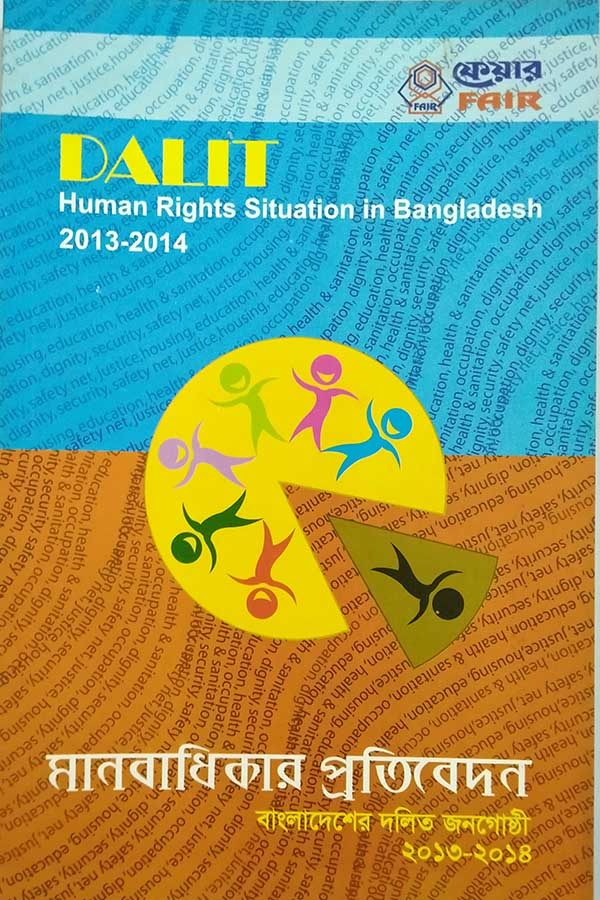Dalit Human Rights Situation in Bangladesh (2013-14)

Executive Summary:
This report is divided into 10 chapters. First chapter describes the background of this report and in the second chapter an introduction to Dalit community has been sketched.
Chapter three deals with human rights violation situation of Dalit community. An analysis of 2013-14 human rights violation situation shows that 500 dalit families fell victim to different incidents of violence including 9 attacks, 7 cases of alter demolition in various incidents of vandalising and torching, attacks on 40 fishermen families and 90 incidents of residence demolition. It was found during the reporting time that 06 cast and professional based discrimination occurred.
Access of Dalit community to “Social Safety net program” has been discussed in Chapter four. It is found in a survey of FAIR in 2014 that most of the head of khana know about 2/1 allowances but in getting the allowance services the situation is very poor.
In Chapter five Dalit students’ access in Education and the existing situation is explained. Dalit students are discriminitated in the society, state and even in the school by their classmetes and teacher too regularly. The Dalit para/colony are also not education-friendly, especially harijon communities who live with 7-8 family members in 8/12 square foot small room.
In Chapter Six Dalit people’s access to Job and occupation has been described. For generations Dalit people are traditinally engaged in Ancestral profession. Due to modern technology, change of demand, limited scope of profession and poverty Dalit people are facing crisis in their profession.
In Chapter Seven Dalit access in housing and land issue is mentioned. Though Dalit are deprived from land rights for 200 years government has no effective initiative in this regards.
In Chapter eight Dalit access to RTI Act 2009 has been discussed. RTI Act is introduced to ensure transparency and accountability in the services of the GO and NGO institutions. Though this law ensures applicants to get information from government and non-government authority but is was found that most of the authority did not provide information to the applicants.
In chapter nine picture of Dalit access to the DSS implemented special projects have been highlighted.
And finally chapter Ten includes challenges and recommendations as found through the survey and study.
